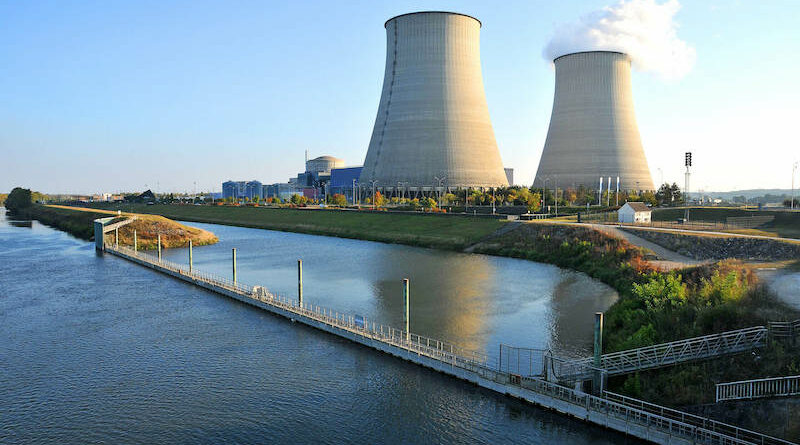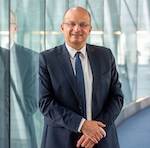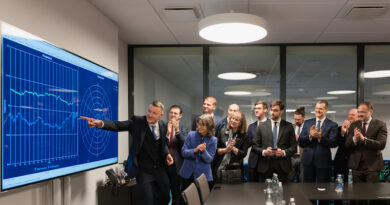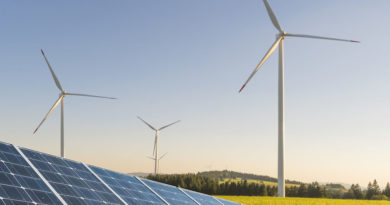
Current and future contributions of nuclear energy to energy security
Europe faces a dual challenge: ensuring its energy security while meeting climate targets. In this context, nuclear energy plays a central role by providing stable, low-carbon, and competitive electricity, complementing renewables. More than just a transition solution, nuclear power is a pillar of Europe’s energy sovereignty.
Nuclear Energy already contributes to Europe’s energy security
With 98 GW of installed capacity, nuclear energy currently accounts for 24% of the EU’s electricity production, ensuring grid stability by providing dispatchable electricity that benefits all Member States. As the share of renewables increases, nuclear power acts as a baseload energy source, adapting to demand fluctuations and renewable intermittency, ensuring constant and competitive energy supply. It is also crucial to remember that nuclear energy already provides decarbonized electricity.
In 2024, 75% of the electricity produced in the EU was carbon-free, thanks to a combination of renewables and nuclear power. The coming mass electrification makes this complementarity essential and must be addressed without discrimination.
Studies indicate that electricity demand is expected to triple by 2050. Ensuring a reliable and fossil fuel-independent energy supply is crucial, as fossil fuels remain highly imported. In this context, it is always preferable to consume locally produced nuclear electricity in Europe rather than burn imported gas.
The global nuclear revival places atomic energy at the core of energy policies
The trend is clear: the updated National Energy and Climate Plans (NECPs) of EU Member States project 150 GW of nuclear capacity by 2050, far beyond the status quo estimates of the European Commission. These national strategies send a strong signal, highlighting nuclear energy’s key role in achieving carbon neutrality. Internationally, the momentum is similar.
At the last two COP summits, over 30 countries committed to tripling global nuclear capacity by 2050, backed by the OECD Nuclear Energy Agency (NEA), which emphasizes that such an expansion would significantly help countries meet their climate goals while enhancing energy security.
Small Modular Reactors (SMRs) also present new opportunities by replacing coal plants, powering industrial sites, data centers, and remote areas, further strengthening nuclear energy’s appeal as a viable energy solution. Therefore, we need all forms of nuclear technologies, from SMRs to large-scale reactors. In this context, European industry must rise to the challenge. The EU’s climate and industrial strategy must provide a stable and ambitious framework to accelerate nuclear development.
A strengthened European commitment must translate into concrete actions across the entire value chain
The Clean Industrial Deal, unveiled in late February, marks a turning point: the European Commission finally acknowledges nuclear energy’s role in industrial competitiveness and energy security. The extension of long-term contracts (PPAs and CfDs) to nuclear power, in line with the electricity market design reform, along with the European Investment Bank’s (EIB) pilot project to guarantee these contracts, are major advances to secure investment. However, this roadmap must be backed by concrete actions and reflected in key upcoming political decisions, such as the next Multiannual Financial Framework (MFF) and the revision of State aid rules. Declaring victory prematurely would be a mistake. To sustain this momentum, it is essential not to overlook a key component of the nuclear sector: the fuel cycle. While Europe controls the entire nuclear value chain, uranium supply, enrichment, and recycling remain critical concerns.
We must diversify supply sources and strengthen enrichment and recycling capacities, with projects similar to the strategic expansion of the Georges Besse II plant at Tricastin in France, announced in late 2024.
Such projects bring significant strategic value, reinforcing Europe’s long-term energy autonomy.
Conclusion
Europe has the capability to ensure sovereign, decarbonized, and competitive energy. Nuclear
power is an asset, not an option—it must be fully integrated into the EU’s energy and industrial
priorities and not be limited to SMRs alone. The entire value chain must be considered.




